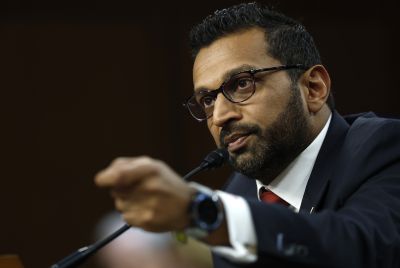China rejects $2.4 billion Coke bid for Huiyuan Juice
China has rejected Coca-Cola's
The acquisition by Coca-Cola would have been the largest-ever buyout of a Chinese company by a foreign rival, and is the latest rebuff for an overseas buyer of a mainland firm.
Observers said China's ruling on Coke could cut both ways in that Chinese firms that have been making increasingly high profile acquisitions abroad may run into trouble of their own.
Australia's Foreign Investment Review Board is considering three big investments by Chinese state-run companies in its mining sector.
In particular, political opposition to Rio Tinto Ltd's
It indicates that foreign acquisitions of Chinese companies, particularly those with prominent brands, will not be regarded favorably by the Ministry of Commerce, said Lester Ross, managing partner with the WilmerHale law firm in Beijing.
And that, conversely, indicates that Chinese companies seeking to make acquisitions overseas may encounter an adverse reaction in those markets, if foreign companies are essentially frozen out of the Chinese market in terms of expansion through acquisition, he said.
Ross said it was very unlikely the Chinese ministry would have made its decision without higher political clearance and, if that's the case, it's entirely natural to anticipate that other countries will regard acquisitions by Chinese companies in a very similar way.
COMPETITION
China's Ministry of Commerce said in a statement the Coke deal would have been bad for competition and Coca-Cola's changes to the deal were insufficient to allay its concerns, rejecting the transaction under an anti-monopoly law enacted last year.
A Coca-Cola spokesman in Hong Kong did not have an immediate comment, and an official with Huiyuan could not immediately be reached for comment.
JPMorgan analyst Selina Sia said the two companies would have held a combined 40 percent of China's fruit juice market, and the ruling was not a surprise.
If Coke were to take over Huiyuan, it will dominate the soft drinks market in China, which not only hurts consumers, but also other sector participants, she said.
Huiyuan controls more than a tenth of a Chinese fruit and vegetable juice market that grew 15 percent last year to $2 billion. Coca-Cola has a 9.7 percent market share and dominates in diluted juices.
China is Coke's fourth-largest market and a key battleground with rival PepsiCo Inc
.
Jeffery Lau, an analyst with Polaris Capital in Hong Kong, said the ruling confirms that China remains unwilling to allow the takeover of a national brand.
But this is not exactly a huge surprise. Protectionism has been on the rise everywhere this year, he said.
TIT FOR TAT?
Last year, after three years of talks, U.S. private equity firm Carlyle Group
China has itself been snubbed in overseas acquisitions, most notably in 2005 when U.S. political opposition blocked CNOOC Ltd's <0883.HK>
Shares in Huiyuan were suspended from trading earlier on Wednesday after slumping nearly 23 percent following a Financial Times report that Coca-Cola might drop its bid for Huiyuan after Chinese antitrust regulators signaled it would have had to relinquish the Huiyuan brand after the acquisition.
Huiyuan shares had traded below Coca-Cola's HK$12.20 per share offer price, indicating investors doubted the deal would go through.
(US$1=HK$7.8)
(Additional reporting by Jason Subler, Kirby Chien, Donny Kwok, Fion Li and Parvathy Ullatil; Editing by Ian Geoghegan)
© Copyright Thomson Reuters 2024. All rights reserved.




















